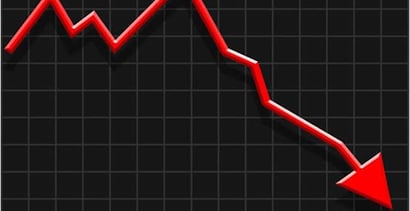

A credit score is calculated from many different aspects of your financial history. Aside from your payment history, credit card utilization, age of credit history, total accounts and credit inquiries, derogatory marks on your credit score will have one of the most significant impacts.
What exactly qualifies as a derogatory mark? How do you remove them from your report or cancel them out?
1. Foreclosure
Foreclosure means a bank or other investor in the property you are making payments on has taken control of the property as a result of your failure to make payments.
2. Collections
If your credit account has been sold by the original creditor to a third-party debt collector because you have missed many payments in a row, your credit score will take a significant hit.
“The best way to avoid derogatory
marks is to use credit wisely.”
3. Liens
A lien is attached to your property and tells the public you owe money to a creditor on the property. Unpaid tax liens are especially derogatory, as they can remain on your report indefinitely.
4. Civil judgments
A civil judgement means a legal entity has determined you must pay a debt to the plaintiff in a civil court case.
It’s important to dispute any derogatory marks that may be inaccurate on your credit score. Under federal regulation, derogatory marks can remain on your score for seven to 10 years.
If something doesn’t look right to you, inform the credit reporting agency in writing to identify the incorrect information and request it be removed.
The Federal Trade Commission has provided a sample dispute letter for you to use as a reference when composing your dispute letter.
After receiving your letter, credit reporting agencies must review the items in question within 30 days.
If the information is found to be inaccurate, the three credit reporting agencies will be notified and required to correct the information. If there is an incorrect derogatory mark, this can significantly raise your score.
Above all, the best way to maintain a good credit score and avoid derogatory marks is to use your credit wisely and make your payments on time. Being aware of the factors that can bring down your score will help you avoid them and keep your credit score in a range that will be beneficial to you.
Photo source: eyeonwindows.com
Advertiser Disclosure
BadCredit.org is a free online resource that offers valuable content and comparison services to users. To keep this resource 100% free for users, we receive advertising compensation from the financial products listed on this page. Along with key review factors, this compensation may impact how and where products appear on the page (including, for example, the order in which they appear). BadCredit.org does not include listings for all financial products.
Our Editorial Review Policy
Our site is committed to publishing independent, accurate content guided by strict editorial guidelines. Before articles and reviews are published on our site, they undergo a thorough review process performed by a team of independent editors and subject-matter experts to ensure the content’s accuracy, timeliness, and impartiality. Our editorial team is separate and independent of our site’s advertisers, and the opinions they express on our site are their own. To read more about our team members and their editorial backgrounds, please visit our site’s About page.




